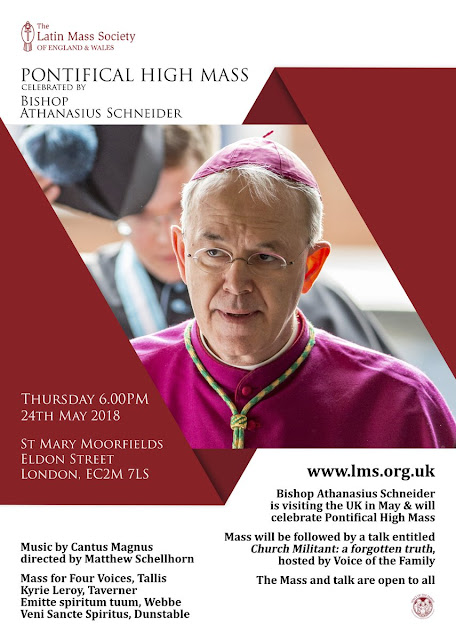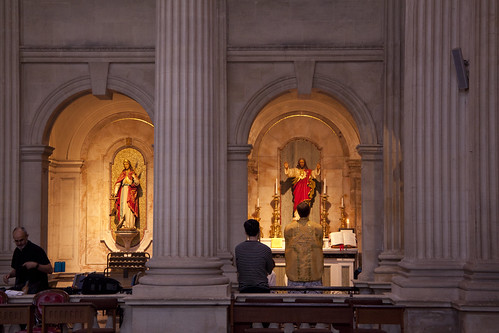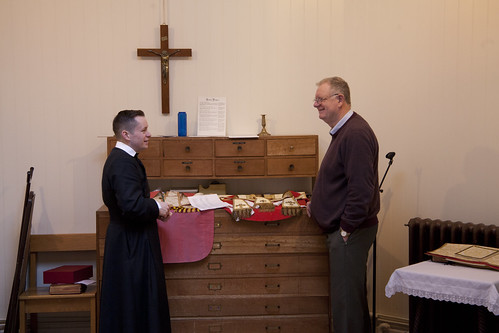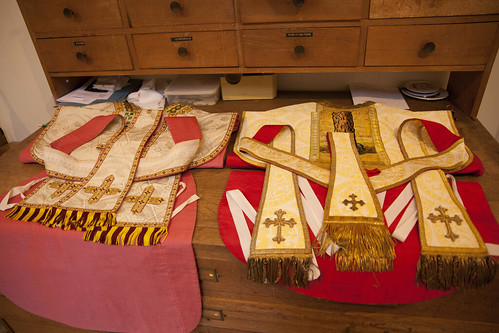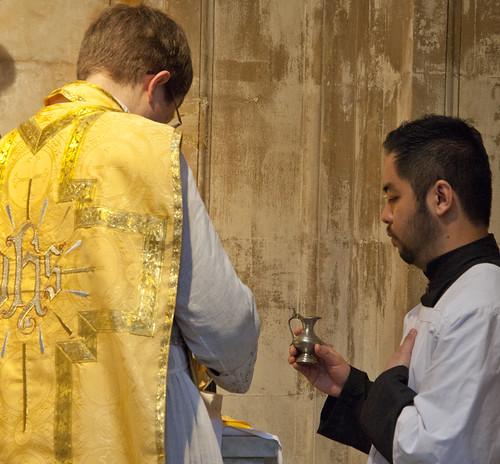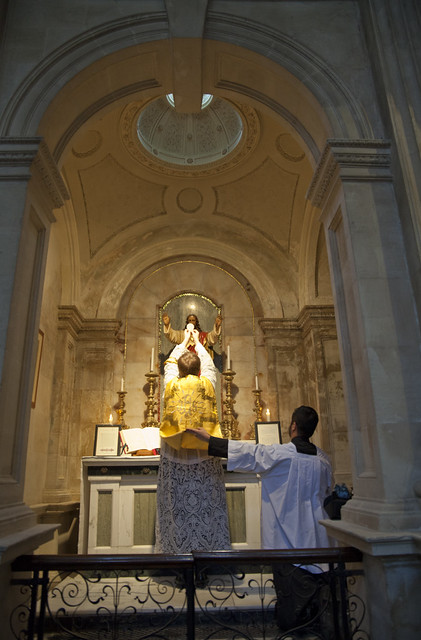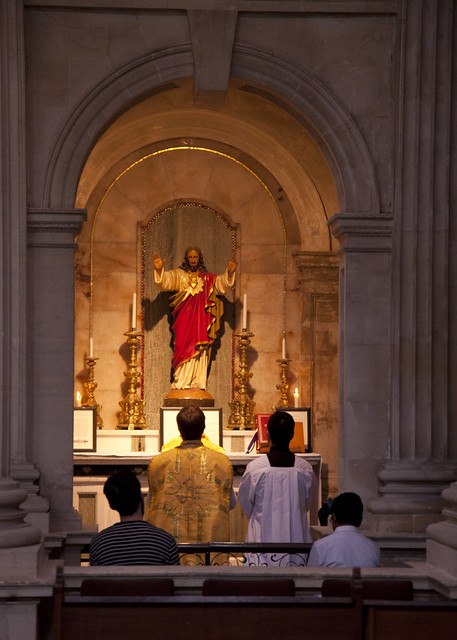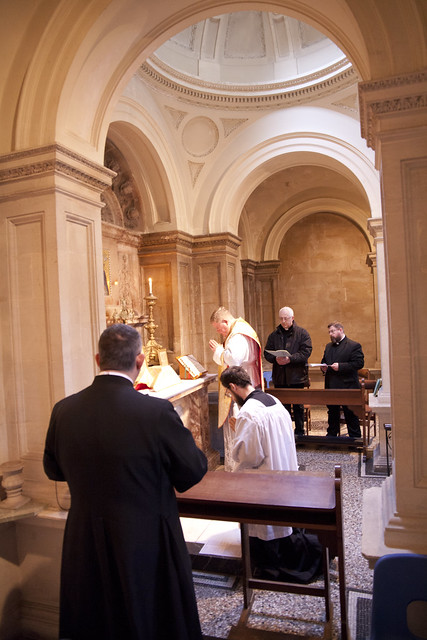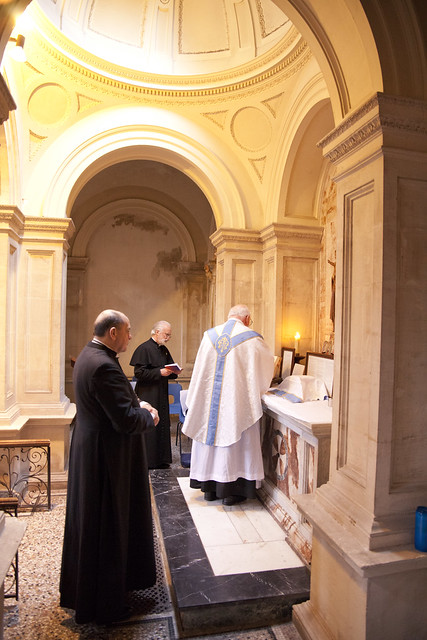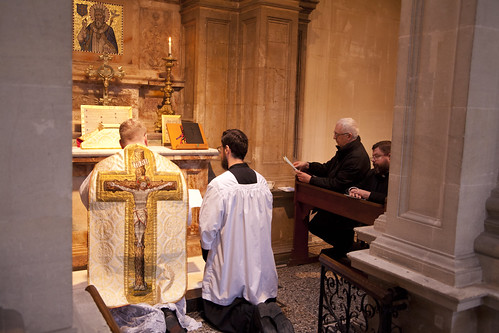Chairman's Blog
Alfie and parental rights
One positive aspect of the debate about the Alfie Evans case - and heaven knows there are plenty of negative aspects - is the way that the rights of the parents came into focus. Over the last several decade the rights of parents have been eroded in every area of family life and every area of law: in education, in child safeguarding, and in healthcare. There has been some push-back on the role of the secret Family Courts and the Social Services recently, and this may have helped to draw attention to the rights of parents in the Alfie case as well.
Children who are too young or too ill to consent or withhold consent for medical treatment must not be deprived of medical treatment just for that reason. It has always been the case, and it remains the case, that parents are able to consent, or withhold consent, on their behalf. The same is true of children's property: parents act a trustees and can consent or not on behalf of their children in relation to property owned by their children. It is an obvious legal doctrine and a very necessary one. If you take your child to hospital for treatment, you will be asked to sign special forms giving consent to the treatment. Sometimes you have to sign over and over again as treatment goes on.
An attitude has developed, however, among some in the medical, legal, and political establishments, which regards this as a tedious and unnecessary rigmarole. Once a child is under the care of a qualified doctor, it would be wrong for the parents to refuse to consent to whatever treatment or lack of treatment the doctor thinks is appropriate. There is something slightly creepy about a doctor or social worker asking a parent to sign a form handing over the legal right to do something and simultaneously whispering that, if the parent doesn't sign, there'll be trouble. A lot of parents are getting this creepy impression.
Much as the criticism by Americans of the UK's 'socialised' medicine is irritating to us here, on this they do have a point. In private medical practice, getting a second opinion is the most natural thing in the world. Private doctors don't have the feeling of ownership over their patients which the National Health Service has developed. The idea that a patient might fail to take his pills, or might take his problems to a quack, may be distressing to a private doctor, but his first instinct is not to call the police. But that is exactly what is increasingly happening in the NHS.
No doubt people will rush to point out that Alfie Evans ended up with multiple 'second opinions', and his parents were able to argue the case for their preferred option at considerable length in a court of law. But there is something surreal about these courtroom arguments. Mr Justice Hayden was called upon to the assess the testimony of multiple doctors. He has to consider their qualifications and experience. He had to weigh up the pros and cons of various plans for treatment or non-treatment. His decision was that, though he found it was overwhelmingly probable that further treatment would not cause Alfie any suffering, the possibility that it might do so made it, on balance, not the right thing to do, given the limited upside of the proposed treatment.
But Mr Justice Hayden has no medical expertise. Why on earth was it up to him? What, to use a legal term, is his locus standi, his standing or relevance to the question? As the law stands it is up to a judge to determine the 'best interests' of a child if a doctor does not want to accept the decision of a parent or guardian. This would make sense if a doctor, or any other bystander, was intervening in a case which looked like abuse. But Hayden made it clear that Alfie's parents were not only devoted to their child's wellbeing but were extremely well informed about the medical facts. It also emerged, in the court proceedings, that the parents' preferred option would have been regarded as reasonable by the medical establishments in Italy and Germany. Ok, so we can disagree with the parents, and with the foreign doctors. But simply disagreeing with another person's carefully-considered opinion, in the light of competent medical advice, about the best interests of their child, should not entail calling in the strong arm of the law.
So I'm not saying that the rejection of the treatment proposed by the Bambino Gesu was, in itself, an unreasonable judgement to make. I'm just asking how we've come to the position when this judgement is being made, not by parents, and not by doctors, but a judge sitting in court.
The only way to justify what happened is to say that, not that parents can be overruled where they are clearly harming their child, but that the have no role to play in decision-making at all. Indeed, in one of the most worrying aspects of the judgement, two of the doctors quoted seemed to be of the opinion that the fact that Tom Evans and Kate James were Alfie's parents made them less competent to influence decision-making about Alfie's care, not more:
these reactions are very difficult to separate especially for parents. (para 21)
It may also be difficult for the parents to understand, but in my opinion there is little if any to offer. (sic: para 22)
Now obviously parents, like everyone else, can be effected by their emotions and can succumb to irrationality. But it is their very visceral attachment to their children which is the guarantee of their concern for their children's welfare. Justice Hayden's amateur psychoanalysis of Alfie's parents, a pastime to which he frequently returns in his judgement, is not only patronising and unprofessional, but spectacularly misses the point. Parental concern for a child is the proper and appropriate attitude for a parent of a sick child, and parental insistence on the child's welfare is the proper and appropriate principle to guide his care.
To fend of the inevitable retort, that some parents lack this concern: yes, and that is negligent or abusive and the law can deal with such cases without removing parental rights altogether. The blindingly obvious feature of this case is that we are not dealing with such a situation here.
Hayden quotes a previous judgement setting out pithily the current legal situation in England and Wales: 'the sole principle is that the best interests of the child must prevail and that must apply even to cases where parents, for the best of motives, hold on to some alternative view.' (para 49) At the risk of repeating myself, this takes for granted that we are talking about the 'best interests of the child' as determined by a court of law, as opposed to as determined by parents, or even as determined by the child's medical team. (Courts can, at least in theory, rule in favour of parents and against doctors, as well as the other way round.) It is a statement of the legal principle that parents are in the last analysis mere onlookers in relation to their children's health. To different extents this has attitude already been applied, by parallel, to children's education, their sexual lives, and their psychological well-being. The logic of this principle is that parents are not parents but mere biological pathways for the production of wards of the state.
Most parents most of the time, in Britain in 2018, have not been deprived of their stewardship of their children's wellfare. At present this kind of reasoning is only wheeled out where a serious conflict has developed between parents and some state agency. But the legal principle is becoming well-established and its extension to wider and wider areas of life is just a matter of political and legal will. Should this happen the state may begin to notice a disengagement by parents, a disinclination to invest in their children, and a disinclination to have children. They may find their final victory over the family is a hollow one.
This is the last of a four-part series on the Alfie Evans case. See also:
Alfie vs. the System
Alfie and the Natural Law
Alfie and end of life care
Support the work of the LMS by becoming an 'Anniversary Supporter'.
Alfie and end of life care
I have been reading the key legal judgement of the Alfie Evans case: a long document, but an interesting one. It emerges, for example, that Mr Justice Haydon, whose judgement it is, is not able consistently to use an apostrophe correctly. But another piece of poor style struck me more. Reporting the views of one of the doctors, Haydon remarks that, in this doctor's view, 'Alfie’s prognosis is futile.' (para 25).
Literally, this means that the prognosis this doctor had made was a waste of time: it wasn't going to achieve anything. On the contrary, of course, the prognosis was not futile: Haydon found it very useful. What he actually meant, presumably, was that the prognosis for Alfie was poor, and yet I think Haydon wanted to convey more than that by his strange use of the term 'futile'. He wanted to convey the idea that it was Alfie's continuing life which was, in some sense, futile.
It is common enough to say that medical treatment is futile, and this phrase is also found in the judgement. But we should be alert to what is going on in even this phrase. Futility is a property of means in relation to a given end. It is futile to try to build a house out of rice-paper. It is futile to defend oneself against an assailant with a rubber sword. Those means chosen to those ends are not going to do the job successfully. Continued artificial ventilation, food and water was not going to restore Alfie to health. Nor, on the balance of probability, were the treatments offered by the Bambino Gesu hospital in Rome. This does not make them absolutely futile, however, since there may be another possible goal to which they could be effective means. This is the prolongation of Alfie's life. This runs into the objection, however, that on Haydon's view such as life as Alfie has was itself futile.
One might assume that this would mean that Alfie's life was characterised by suffering, but on this topic Haydon got himself into a muddle. The doctors agreed that Alfie was very probably not capable of any kind of perception or sensation, including suffering. It is a key component of the judgement that Alfie was not responding to stimuli, apart from spinal reflexes; much space is occupied by this issue. According to Haydon, it follows from this that Alfie's life is not worth prolonging. But when it came to the plan to move him, it is the possibility that Alfie could feel pain which is suddenly given salience. If this possibility is a serious one, however, then Haydon's determination that Alfie could not derive any positive comfort or pleasure from his parents and others is called into question. You can't have it both ways.
Similarly, Haydon seems confused about what Alfie's quality of life might be. In a remarkable paragraph, he rejects the view of the 'Guardian', the state-appointed lawyer who is supposed to argue on behalf of Alfie, that 'his life lacks dignity' (para 54). To his great credit Haydon not only visited the hospital but took in what he witnessed: 'The atmosphere around Alfie was peaceful, dignified and though some might find it surprising for me to say so, very happy.' Despite this, however, Haydon decided that it was best if Alfie's earthly existence should not be prolonged, even by his being fed.
Those who care for the dying in hospices take a very different view. They understand that the people they care for are dying, but also that this is a stage of life with its own value and importance. What we do for people at this stage in their lives expresses our valuation of them as human beings. We recognise their inherent dignity by treating them with dignity. This does not cease to be the case if they are unconscious, even if they are not to regain consciousness. Their lives remain important because they are important. They may not be able to do very much, but that is not even the beginning of a justification for us to take aim at what they do have left, life itself, and take it away from them.
Care of the dying is not about prolonging life at all costs. When we say that we are referring to the cost of suffering, consciousness, medical resources, and money. Treatments which will not modify a disability or restore function or health are futile, when they aim at those goals and fail to deliver. If, however, we are going, like the currently debased English law, to lump feeding and hydration in with medical treatments, we must be careful about how to use this word 'futile'. It is not the intended function of food and water, under normal circumstances, to restore health; it is their function to nourish a living person. In some cases they do indeed become futile, as means to this end, in the care of a dying person, but this does not appear to have been so with Alfie.
Haydon reports a phrase of Tom Evans which he did not appear to understand. It was that when other possibilities are exhausted, 'Alfie should be allowed home to die “when he decides to”.' (para 40). His father wanted him to die a natural death. It's not much to ask.
His continued life, the precious days or weeks he might have spent in the dignified and happy atmosphere Haydon described, would not have been without value. The extraordinary lengths England's medical and legal establishment went to in order to deprive him of them are an indictment on the whole nation.
Support the work of the LMS by becoming an 'Anniversary Supporter'.
Alfie and the Natural Law
Details are not plentiful about Alfie Evans' medical condition and treatment. Outsiders do not ordinarily have the right to know such things. I will limit myself to generalisations.
A particularly frustrating aspect of the debate online was the mantra sent up by those not on Alfie's team that 'the Church's teaching does not forbid the removal of artificial feeding and hydration' and the like. This is misleading, to say the least. It is also true that the teaching of the Church does not forbid moving a knife through the throat of an innocent person in a dark alley. The reason in both cases is the same. These are not adequate descriptions of actions for moral appraisal.
There is a very big difference between saying 'you've not given me enough information to be able to say whether this action is right or wrong' and saying 'this action is not wrong'. Liberal apologists want their readers to assume the second, but if challenged they will bleat that they only meant the former. This is intellectually dishonest.
In the dark alley, the questions we must ask are obvious enough. Did the agent know the person's whose throat he was cutting was innocent, or did he imagine the victim was an attacker? Did he know anyone was there at all? Was the agent in his right mind? And so on. Since there are an infinite number of possible complicating factors we can cut to the chase and ask one, ultimate question: what was the agent's purpose, or intention? What was he trying to do?
The answer gives us what the Common Law calls the mens rea, and what Aquinas calls the 'species' of the action. If the intention is innocent, there are further questions to ask: was the agent taking an unnecessary risk? I.e., was he negligent or reckless? And did he have a duty to be doing something different? If the intention is one of those the Church tells us are per se malum, evil in themselves, then othis is an action which can never be justified. The intention to kill the innocent is one such evil intention.
Until recently, the law of this country mapped onto the Natural Law, which the Church sets out, fairly closely, on matters of life and death. This is no longer the case. With recent developments in the law, which take the form of judge-made law and the official guidelines of the Crown Prosecution Service, the law of the land has turned into a swamp of moral and conceptual confusion. To put it at its simplest, it is no longer the case that the mens rea of ending the life of an innocent person (for practical purposes this just means a person not trying to kill you), is legally ruled out. Courts can and do decide that steps can be taken which we would most naturally describe as aiming at the death of a patient, if the patient is suffering, or if the patient's life seems to serve no useful purpose. 'Suffering' of course what pro-euthanasia advocates like to talk about: better still, 'intolerable suffering'. But it is noteworthy that the legal precedent for our descent into this legal abyss was set by the 'Bland' judgement back in 1993, about a man who was not suffering in the least: nor was he dying. He was in a coma, and was diagnosed as being in a 'vegatitive state'.
From a legal point of view, and hence from the point of view of the medical profession, the things Catholic ethicists say about the care of the terminally ill, such as that one not need not prolong their lives to an insignificant extent with burdensome treatments, no longer have any importance. They are just as happy to take steps with the intention of ending a life, once they have judged it best for it to end, as to end pointless treatment, like the antibiotics which might extend a painful death by a week or a day. They have no interest in the question of whether removing artificial feeding, hydration, and breathing equipment is aiming at killing or has some other justification. In medical ethics textbooks and in courtrooms alike the distinction is regarded as footling and of no ethical significance. This is a reality to which Catholic commentators wishing to think the best of the medical profession need to wake up to.
Nevertheless, it remains true that to aim at the death of an innocent human being is a grave wrong, a wrong, indeed, which cries out to heaven for vengeance. It is something which should be ruled out of consideration by the strongest taboo, and to fail to do this undermines the entire edifice of respect for our fellow human beings.
Removing feeding, hydration, and breathing assistance are not ruled out by the Natural Law. No, indeed not. Just ask the doctors why they are removing them. Are they needed urgently in another part of the hospital? Have they become a source of discomfort for the patient? These not merely logically possible: it can be so in real cases. In Alfie's case, it seems extremely unlikely, however, as he was not suffering: according to the doctors he was incapable of suffering. It seems probable, therefore, that they were removed in order to hasten his death. Which is to say that the intention of this action was that he die.
At any rate, if this is so it fits in with a lot of recent cases, and a lot of recent discussion. Readers may remember the 'Liverpool Care Patheway', which advocated, or seemed to permit, in some cases, sedation and starvation. Since this was only one option among many, under particular circumstances, a bit ambiguously, the Bishops of England and Wales were eager not to oppose it. It was left to a Jewish lawyer, Baroness Neuberger, to condemn it in a public enquiry in 2013, after a campaign by the press which, no doubt, left out a lot of nuances. But without overturning the legal precedent set by the Bland case and others, we are inevitably going to slide back to this kind of practice: it is exactly what one should expect.
I have the greatest respect for our medical profession, and I owe them a lot in looking after my loved ones over the years. Would I trust them to care for an incurably ill family member in an ethical way? Sadly, no. And nor should anyone.
Support the work of the LMS by becoming an 'Anniversary Supporter'.
Alfie vs. the System
The controversy about the illness and death of Alfie Evans in Alder Hey Hospital in Liverpool makes me want to say a few things to clarify certain issues. I don't have inside information about medical or other details so I won't be going into those.
In this post I want to say something about about the various agencies of the state which were involved: the National Health Service, the Courts, the Police. In similar cases the Social Services can be part of the circus. A lot of people on social media, often from outside the UK, have had some very harsh things to say about these agencies. Those of us who live here and have to deal with them, and see others deal with them, are able to have a more nuanced attitude.
There is, all things considered, a lot to be grateful for in these institutions. I've personally had very good experiences with them, both directly and indirectly. The people working in them are often overworked and under paid. They have a high degree of professionalism. They are not financially or politically corrupt or corruptible in the ways that make dealing with similar organisations in other countries a constant problem. We should be proud to live in a country where they are, basically, on your side, if you have a problem. But they have their limitations.
They have limitations of resources. They have the limitations of their training and official protocols, which can on occasion conflict with common sense. (Any fixed set of administrative rules will on occasion conflict with common sense.) And they have the limitation, from each client's point of view, of trying to see things from everyone else's point of view. This sounds reasonable but can on occasion conflict with justice.
There is another more subtle limitation which arises from these. They are highly bureaucratic and have been given tasks to perform by the State. These tasks are intended to be benign, and usually are; the problem arises when a person interacting with these agencies finds himself in the category of an obstacle to the performance of an official task. If you disagree with what the protocol says should happen next, you become a problem. You become a piece of grit in the colossal bureaucratic machinery. Everyone you deal with starts looking at you as something to be evaded, dealt with, got out of the way of the task they have been given. The harder you struggle against it, the tighter the machinery will grip you.
Sometimes it is possible to defeat the machinery, but if it is a serious matter we are talking about a truly epic struggle. What is better, if at all possible, is to keep on the right side of the protocols: to find a way of presenting your problem in line with these protocols. This is a matter of experience, social skills, and practical wisdom. If you find yourself in conflict with these agencies and lack the relevant experience, you are going to need really good advice. Not always, but often, there are things you can say, buttons you can press, which if done early in the process can turn the situation around. Because these functionaries are not, generally speaking, malignant and unreasonable people. They are just trying to do their jobs.
I don't want to exonerate the state employees involved, when their procedures start producing unjust results: they are free and responsible individuals. But the pressure on them is subtle and immense. The flip side of the professionalism I noted earlier can be an inability to see things except through the lens of the official outlook. Decades of attempts by governments to get these agencies under some kind of control, particularly, in the NHS, financial control, has led to Kafka-esque limits on their discretion and acres of paperwork to prove that what should, officially, have happened, in any interaction with the public, actually happened. The only realistic rebellion open to the employees involved is to walk away from the job, and of course many take this course. Others become so influenced by official attitudes, sometimes derived from amoral government policies, that they end up morally corrupted.
As I say, I don't have a special insight into the inside details of the case, but from a UK perspective the Alfie affair has all the hallmarks of a family who got on the wrong side of the protocols. Alfie's parents were brilliant at creating a fuss, but clearly not so good at playing the system. This never ends well. Faced with increasingly powerful pressure--the MEP, the President of Poland, the Pope, the protesters--to violate their protocols, the system doubles down and calls in the police. Short of an armed revolution, you simply can't win that way. It just isn't possible, psychologically, politically, or legally (I'm speaking loosely here), for the system to concede defeat against such a frontal assault.
I should clarify that the pressure the Evans family created caused a number of good results. It created a cause celebre: it has shone a light onto the case and drawn attention to a real legal problem. It has thereby given a huge boost to the chances of changing the law. It had other, negative, effects. Above all, however, for Alfie's family it represented all they could do, and at that level their efforts must be respected. But in my judgement it was never going to have the necessary effect on the bureaucratic mind-set to get Alfie out of Alder Hey.
I'm not saying that's how things should be: obviously not. I'm just saying that this is how things are, and Catholics in the UK have developed robust and efficient networks of mutual aid to deal with it as best we can, centred around the Pro-Life movement. It is clear that only quite late in the day was the Evans family getting the benefit of this network, and even then it was not as systematic as it might have been. This emerges, for example, from the statement of the Christian Legal Centre here. I don't know if ultimate outcomes could have been different, but it is clear that things could have been handled better.
From the Catholic and pro-life side the lesson is a familiar one: families don't always get the support they need because they often don't know where to look for it. Unless you are already plugged into the Pro-Life movement, it may not cross your mind that there are several extremely experienced and quite well-resourced organisations willing to give you legal help for free, for example, when some hideous problem like this rears its head.
The visible, hierarchical Church could form the necessary connection between ordinary people and these sources of help, because the Church is closely identified with the Pro-Life position and everyone knows where to find the local priest and the local bishop. But thereby hangs another problem. The policy of the hierarchical Church has been to avoid, as best they can, any fight with the State since the Abortion Act. To say that with hindsight the Evans family made mistakes and that the medical profession has been unjustly maligned, as some commentators are saying, does not suggest that the English bishops were right to sit out the crisis on the sidelines. On the contrary, it suggests the opposite.
Support the work of the LMS by becoming an 'Anniversary Supporter'.
Crisis of celibacy
In light of the latest news about clerical celibacy, I thought I'd repost this from March 2013, with a new photo. I hope to write something about the Alfie Evans affair soon.
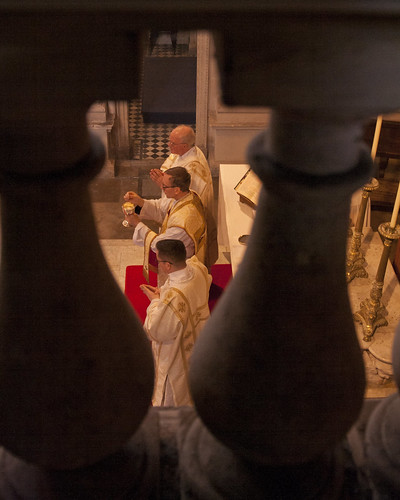 |
| LMS Priest Training Conference April 2018 |
Dr Edward Peters, the well-known canonist, explains what he means by a 'crisis of celibacy' in a post which is well worth reading in full.
[T]he last four decades have seen, I suggest, a steady retreat from defending that value in canon law and pastoral practice—married clergy now outnumber celibate clergy in many arch/dioceses, thousands of married ministers have recently come into full communion with Rome and been ordained priests, the observance of clerical continence has been abandoned in the West, and the quasi-decriminalization of attempted clerical marriage itself (as opposed to remaining in pseudo-marriage) has been accomplished. Any one of these developments would have been portentous; but that they have occurred simultaneously is, I suggest, undeniable evidence that clerical celibacy is in crisis.
While in principle the Western discipline of priestly celibacy is still defended at the highest levels of the Church, with vigour indeed, its legal and practical ramifications have been eroded. We are getting to the point at which it needs either to be reasserted in some tangible, public way, or the gap between theory and practice needs to be closed from the other direction.
In the meantime, the forces of liberalism are aiming at celibacy with all their might. The Tablet seems to have become obsessed with the issue. The fact that you can get even orthodox Catholics to say 'Well obviously this is a matter of Church discipline rather than sacramental validity' presents an ever-tempting opening. If it is a matter of discipline, it can change, right?
Liberals appear to think that celibacy is some kind of steam-valve which can be opened to relieve all sorts of problems in the Church: sex abuse, the shortage of vocations, Mass attendance and who knows what else. This is a mistake for two reasons: first, it completely misdiagnoses the vocations (and other) crisis(es); and secondly, because what Dr Peters is talking about it is true, by parallel, with a large number of other issues. I want to deal with the first in a separate post, but what I mean by the second point can be illustrated like this.
In the official documents of the Church, confession is given (obviously) the orthodox definition and explanation: it is necessary for the remission of mortal sin (eg Catechism of the Catholic Church 1457). Once upon a time that was a reality which was manifested in all sorts of ways, in all sorts of disciplines and practices. You could tell Catholics took it seriously because they queued up for confession on Saturday afternoons and were selective about when they went to communion. You knew they took it seriously because of the architectural prominence given to confessionals in the church, and the stress on sin and confession in preaching and catechism. Now, those outward things were not necessary for it to be true that the Church taught what she taught, some of them might even have be better done differently. But today, in many places, the teaching on the necessity of confession is a matter of theory, not practice. It is not manifested in how churches look, what Catholics do, what priests preach, what is taught in RE. And it is not in the hearts of many Catholics as belief.
The same can be said about the reality of the Presence of Our Lord in the Blessed Sacrament. About the Sacrificial nature of the Mass. About the identification of the priest with Christ. About the authority of bishops. About the usefulness of devotions, sacramentals, and blessings. About the intercession of the saints. About the Divinity of Christ. About the indissolubility of marriage. About, in fact, pretty well every aspect of the Church's doctrine and moral reaching. This has happened because of a strange alliance between people who think, or claim to think, that the teachings are so secure and so obvious that it is not necessary to labour them, and people who think, or claim to think, that the doctrines are embarassing, off-putting, or just wrong, and should disappear. Actually, both explanations are sometimes given by the same person, addressing different audiences.
Bl John XXIII was not immune from the first temptation. The high-water mark of this attitude must surely be his speech opening the Second Vatican Council:
'Not that the need to repudiate and guard against erroneous teaching and dangerous ideologies is less today than formerly. But all such error is so manifestly contrary to rightness and goodness, and produces such fatal results, that our contemporaries show every inclination to condemn it of their own accord—especially that way of life which repudiates God and His law, and which places excessive confidence in technical progress and an exclusively material prosperity.'
Admittedly, things did look different in 1962. Back then it looked as if the rope bridge between the words printed in the Catechism and the lived experience of Catholics would still be strong enough to carry traffic if a few of the cords were loosened or cut. Maybe that was true. But then things got a bit out of hand...
Traditionalists like it when things are returned to their former state in the Church, at least in many ways: when the altar rails go back, when people genuflect properly, when Friday abstinence is restored; and of course we like the old liturgy. This is not nostalgia, however. While each thing is neither necessary nor sufficient for lively faith or a true Catholic understanding, they help. That is what they are there for, to help Catholics live the life those dusty old documents say we should live. We need all the help we can get. When the help is taken away, things go wrong. It's true of celibacy, it is true of everything.
Sewing Retreat 2019: booking open
The Guild of St Clare had a hugely over-subscribed 'Sewing Retreat' near Oxford for the second year running, so for the future two are planned: one at roughly the same time of year in 2019 and the same vanue, near Oxford, and one for this autumn in a new venue, Douai Abbey, which is between Reading and Newbury. Booking for both is open on the Latin Mass Society website.
Last Saturday the Guild had its first Vestment Mending Day in the LMS Office, where most of the LMS vestment collection is held. There will be another on May 12th; email the Guild if you'd be interested in taking part (places are limited).
From the Guild:
Bookings are now open for both forthcoming Sewing Retreats. Registration for the one at Douai Abbey, taking place from 23rd-25th November 2018, can be completed here. For the retreat at Boars Hill, 1st-3rd February 2019, book here.
 |
| Vestment mending day at the LMS Office, Sat 21st April |
Places are limited on both these retreats: please don't delay if you are keen to come.
Support the work of the LMS by becoming an 'Anniversary Supporter'.
Feast of the English Martyrs, Didcot
Fr Philip Pennington Harris, Parish Priest of the Church of the English Martyrs in Didcot, is celebrating his parish's Patronal Feast on Friday 4th May with a Traditional Missa Cantata. It will be accompanied by the Schola Abelis of Oxford. Join us!
The church is at 15 Manor Crescent, Didcot OX11 7AJ (click for a map).
Mass is at 7:30pm.
Support the work of the LMS by becoming an 'Anniversary Supporter'.
Pilgrimage in honour of the English Martyrs in Preston, Sat 5th May
Support the work of the LMS by becoming an 'Anniversary Supporter'.
Bishop Schneider to say Mass in London 24th May
Support the work of the LMS by becoming an 'Anniversary Supporter'.
LMS Priest Training: private Masses
Another characteristic feature of these conferences are the private Masses. This time I was able to see not only private Masses before breakfast with one server, but others celebrated as a demonstration to priest participants.
We are very fortunate in this venue, Prior Park, since in addition to the High Altar there are four beautiful side-altars. Once upon a time, these would have been used daily by the priests teaching in the school. Today, it is wonderful to see them being used simultaneously as originally intended.
The chapels themselves are testimony to an attitude to the Mass to which the Latin Mass Society is devoted: that each celebration of Mass has great value. Even if there aren't many people there - even if there is no congregation at all - priests should want to celebrate Mass daily, and the Faithful should be glad to stipend them to celebrate for particular intentions. As the Congregation for Clergy recently reiterated, the priest's spirituality, the Holy Souls in Purgatory, and the good of the Church and the world are all advanced by each celebration of Mass.
Support the work of the LMS by becoming an 'Anniversary Supporter'.



